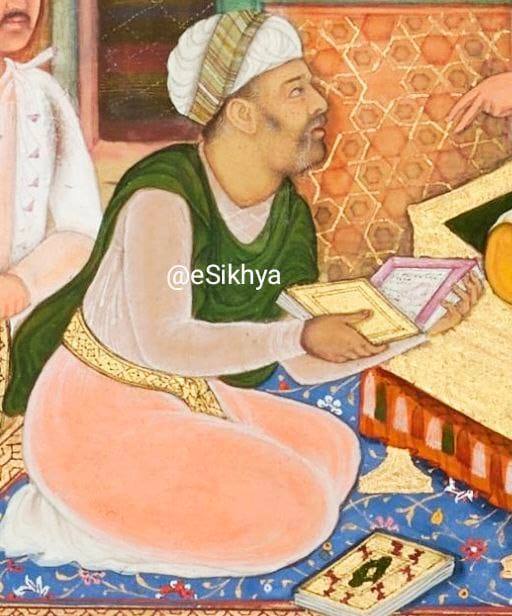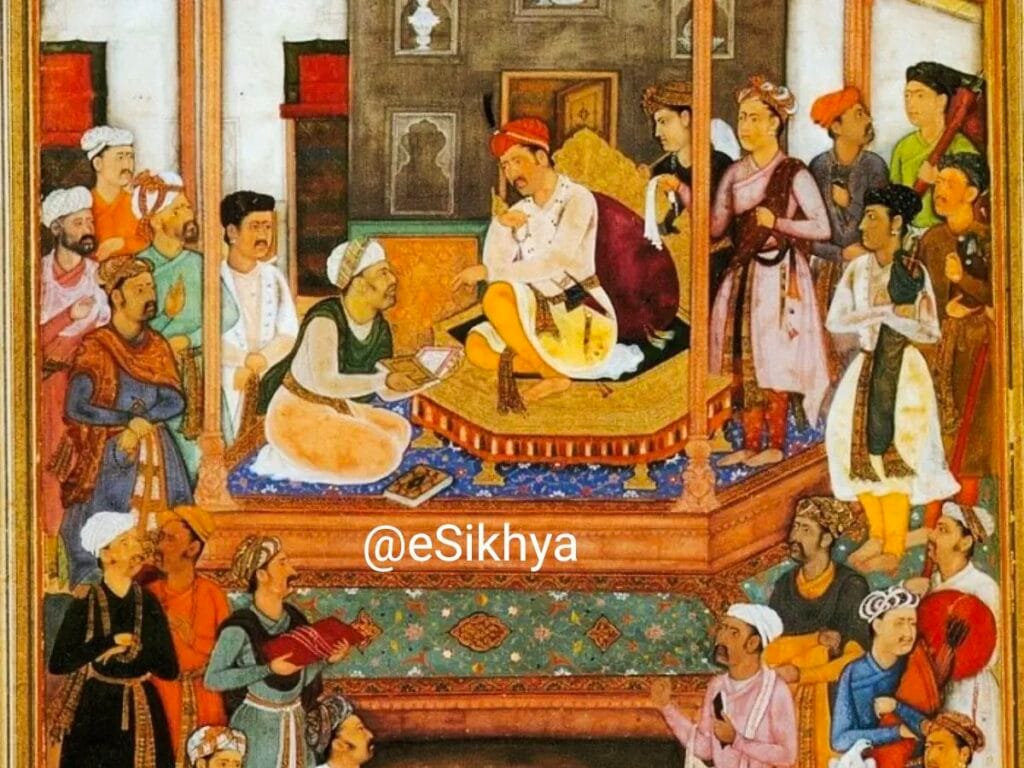Introduction
Abul Fazal ibn Mubarak (1551–1602) was a distinguished scholar, historian, and advisor during the Mughal Empire in India. He is best known for his close association with Emperor Akbar, for whom he served as a chief advisor and historian.

His contributions include :
- “Akbarnama”: Abul Fazal authored this monumental work, which chronicles the life and reign of Emperor Akbar. The “Akbarnama” is not only a historical record but also a detailed account of Akbar’s policies, administration, and the socio-political environment of the Mughal Empire.
- “Ain-i-Akbari”: This administrative and cultural document, part of the “Akbarnama,” provides comprehensive details about the administration, military, and cultural aspects of Akbar’s reign. It is a valuable source for understanding the Mughal administrative system and the era’s social life.
- Role in Administration: Abul Fazal was an influential advisor and played a key role in formulating Akbar’s policies, particularly those promoting religious tolerance and administrative reform.
- Intellectual Contributions: His writings reflect Akbar’s vision of a centralized and inclusive administration, showcasing his efforts to integrate diverse cultures and religions within the empire.
Abul Fazal’s work and his close relationship with Akbar helped shape the historical and administrative narrative of the Mughal Empire, leaving a lasting legacy in Indian historiography.
Abul Fazal - Monarchy
Abul Fazal’s perspective on monarchy, particularly as it relates to Akbar’s reign, provides significant insight into the nature of Mughal governance during the late 16th century.

Here are some key aspects of his views and contributions :
- Centralized Authority: Abul Fazal supported Akbar’s vision of a strong, centralized monarchy. Akbar aimed to consolidate power and reduce the influence of regional chieftains and feudal lords. Abul Fazal’s writings often reflect this emphasis on central authority and the restructuring of the administrative apparatus to enhance the emperor’s control over the empire.
- Inclusive Governance: Akbar’s monarchy was notable for its policy of religious tolerance and efforts to integrate various cultural and religious communities into the administrative framework. Abul Fazal admired and documented these policies, highlighting Akbar’s commitment to fairness and inclusivity. Akbar’s approach was a departure from the more rigid, orthodox practices of earlier rulers.
- Administrative Reforms: Abul Fazal’s work, especially the “Ain-i-Akbari,” illustrates the administrative reforms implemented under Akbar’s rule. These reforms included the development of a more efficient revenue system, the creation of a structured bureaucracy, and the promotion of merit-based appointments. The aim was to create a more organized and effective government.
- Philosophy of Kingship: In his writings, Abul Fazal often reflects Akbar’s philosophical views on kingship. Akbar saw himself not merely as a ruler but as a divine figure with a responsibility to govern justly and wisely. This perspective influenced the way he was portrayed in Abul Fazal’s chronicles, emphasizing his role as a benevolent and enlightened monarch.
- Historical Documentation: Abul Fazal’s detailed chronicles, such as the “Akbarnama,” provide a comprehensive view of how Akbar’s monarchy functioned and the ideals it aspired to. His detailed accounts helped shape the historical understanding of Mughal governance and Akbar’s rule.
In summary, Abul Fazal’s contributions offer a detailed and nuanced view of Akbar’s monarchy, emphasizing centralization, inclusivity, and administrative innovation. His writings reflect both the practical aspects of Akbar’s rule and the philosophical underpinnings that guided it.
